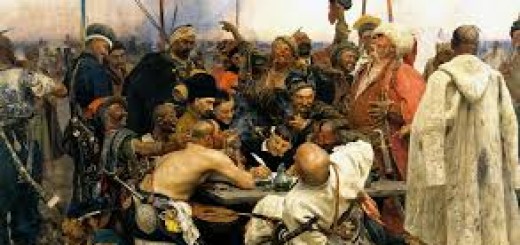Exercise 1. Memorize the following proverbs in which the plural of nouns is used. Give their Ukrainian equivalents.
- So many countries, so many customs.
- Many men, many minds.
- Men may meet but mountains never greet.
- Geese with geese, and women with women.
- Life is not a bed of roses.
- When the cat is away, the mice will play.
- A cat in gloves catches no mice.
- Many words cut more than swords.
- Deeds, not words.
- It rains cats and dogs.
- New lords, new laws.
Exercise 2. Turn the following into proverbs matching following.
a) … cats and dogs
b) … many minds
c) … is not a bed of roses
d) … the mice will play
e) … not words
f) … cut more than swords
g) … catches no mice
h) … and woman with woman
i) … but mountains never greet
j) … so many customs
k) … new laws
1) Geese with geese …
2)New lords …
3) So many countries …
4) Men may meet …
5) It rains …
6) Many men …
7) Life…
8) When the cat is away …
9) Many words …
10) A cat in gloves …
11) Deeds…
Exercise 3. Give English equivalents of the following proverbs and sayings using the plural of nouns. Use Exercise 1,2.
- Що не країна, то звичай.
- Лиє як з відра.
- Гора з горою не сходяться, а людина з людиною сходиться.
- Життя — це не ложе з троянд. (Життя прожити – не поле перейти)
- Гуска свині не подружка.
- Скільки голів, стільки умів.
- Без кота мишам воля.
- Без зусиль не виловиш і рибку зі ставка.
- Злі язики — гострий меч.
- Краще справи, ніж слова. 11. Нові лорди, нові закони.(Нові господарі, нові закони)
Exercise 4. Fill in the blank spaces of the following proverbs and sayings with the nouns in plural given in brackets at the end.
- So many …, so many …. (a country, a custom)
2. It rains … and …. (a cat, a dog)
3…. not …. (a deed, a word)
- A cat in … catches no …. (a glove, a mouse)
5…. with …, and … with …. (a goose, a goose, a woman, a woman)
6. When the cat is away, … will play. (a mouse)
7…. may meet but … never greet. (a man, a mountain)
8. Life is not a bed of…. (a rose) - Many … cut more than …. (a word, a sword)
10. Many …, many …. (a man, mind) - New …, new …, (a lord, a law)
The construction
there is (are)
Exercise 1. Memorize the following proverbs in which the construction there is (are) is used, Give their Ukrainian equivalents.
- There is no flying from fate.
- There is no place like home.
- There is no smoke without fire.
- Where there is a will, there is a way.
- Where are spots even on the sun.
- While there is life, there is hope.
- There is no rule without exception.
- There is no rose without a thorn.
- There is no accounting for tastes.
- There are more ways to the wood than one.
|
Exercise 2. Match the following.
1) While there is life…
2) There are spots…
3) Where there is a will…
4) There is no place…
5) There is no rose…
6) There is no accounting…
7) There is no rule…
8) There is no smoke…
9) There is no flying…
10) There are more ways to the wood..
Exercise 3. Give English equivalents to the following proverbs using the construction there is (are).
- Де хотіння,там і вміння.
- Нема правил без виключень.
- Нема троянди без колючок.
- В гостях добре, а вдома краще.
- Немає диму без вогню.
- Про смаки не сперечаються.
- Поки живу -надіюсь.
- Кінь на чотирьох ногах i той спотикнеться
9. Вiд долі не втечеш, - В лiс веде не одна дорога. (Світ клином не зійшовся)
THE DECREES OF COMPERISON
OF ADJECTIVES
Exercise 1. Try to explain that each proverb means.
- Blood is thicker than water.
- Actions speak louder than words.
- The highest tree has the greatest fall.
- The busiest men find the most leisure.
- Cheapest is the dearest.
- A good name is better than riches.
- Better late than never.
- Better die standing than live kneeling.
- East or West, home is best.
- Two heads are better than one.
- Laughter is the best medicine.
Exercise 2. Complete the following proverbs and sayings by choosing an ending.
|
- Better late …
- A good name is…
- East or West…
- Laughter is…
- Better die standing…
- Two heads are better…
- Actions speak louder…
- Cheapest is…
- The busiest men…
- Blood is thicker…-
11. The highest tree…
Exercise 3. Give English equivalents of the following proverbs. Use Exercise 1,2.
- Кров людська-не водиця.
- Не по словах судять, а по справах.
- Хто занадто високо літає, той низько падає. (Диявол гордився та з неба звалився)
- Самі зайняті люди знаходять більше розваг.
- Дешевше-дорожче обходиться. (Дешево та гнило, дорого та мило)
6. Добра слава краще багатства. - Краще пізно,ніж ніколи.
- В гостях добре, а вдома краще.
- Одна голова добре, а дві краще.
- Краще вмерти стоячи, чим жити на колінах.
- Сміх – найкращі ліки.
Exercise 4. Fill in the blank spaces of the fo11owing proverbs with the degrees of comparison of adjectives given in brackets at the end.
- East or West, home is …. (good — найвищий ступінь)
2…. 1ate than never (good —вищий ступінь)
- Action speak … than words. (loud — вищий ступінь)
- The … men find the … 1eisure. (busy — найвищий ступінь, much — найвищий ступінь)
5…. is the …. (cheap, dear — найвищий ступінь)
- The … tree has the … fa11. (high, great — найвищий ступінь)
- Laughter is the … medicine. (good — найвищий ступінь)
- Blood is … than water. (thick — вищий ступінь)
Exercise 5. Give Ukranian equivalents to the following sayings:
- As black as a crow.
- As busy as a bee.
- As clear as day.
- As fat as butter.
- As hungry as a hunter.
- As large as a ice.
- As old as the hills.
- As pa1e as a ghost.
- As the call so the echo.
- As the tree so the fruit.
- As poor as a church mouse.
- As red as a cherry.
- As silly as a goose.
- As white as a sheet.
- As brave as a 1ion.
- As fat as a pig.
- As clumsy as an elephant.
|
Exercise 6. Match the following.
- As black as…
- As busy as…
- As clear as…
- As the tree…
- As c1umsy as…
6, As silly as…
- As white as…
- As red as…
- As the call…
- As pa1e as…
- As 1arge as…
- As fat as…
- As poor as…
- As old as…
- As fat as…
- As hungry as…
Exercise 7. Give English equivalents of the following sayings.
- Трудолюбивий як бджiлка.
- Ясно як день.
- Білий як простирадло.
- Чорний як ворон.
- Жирний як масло.
- Жирний як свиня.
- Як кров з молоком.
- Незграбний як слон.
- Бідний як церковна миша.
- Яке дерево такий i плід.
- Як гукнеться так i в1дгукнеться.
- Дурний як пень.
- Старий як свiт.
- Довге як життя.
- Блідий як смерть (як привид).
- Хоробрий як лев.
THE VERB
THE CATEGORY OF TENSE
THE PRESENT INDEFINITE
Exercise 1. Pay attention to the forms of the third person singular of the verbs in the Present Indefinite Tense in the following proverbs and sayings. Give their Ukrainian equivalents.
- Everything comes to him who waits.
- Nothing flies into the mouse of the sleeping fox.
- A rolling stone gathers no moss.
- After diner comes the reckoning,
5. He who laughs last laughs longest,
6. Custom makes things easy. - Time flies.
- Charity begins at home.
- A great ship asks deep water.
- All is well that ends well.
- The customer is always right.
- Love conquers all.
- Love makes the world go around.
- Man proposes, God disposes.
- The appetite grows by eating.
- A new broom sweeps clean.
- A bad workman always blames his tools.
- Absence makes the heart grow fonder.
- Every bird likes his own nest.
- The end crowns the work.
|
Exercise 2. Complete the following proverbs proverb means by choosing an ending. Then try to explain what each
- He who laughs last …
- Charity …
- A new broom …
- Absence …
- A great ship …
- All is well …
- A bad workman …
- Man proposes …
- A rolling stone …
- Time …
- Love makes the world …
- The costomer …
- Love …
- Nothing flies …
- The end …
- Every bird …
- Everything comes to him ..
Exercise 3. Give English equivalents of the following proverbs and sayings concentrating on the use of the Present Indefinite Tense. Use ex. 1 and 2 as a key.
- Кінець — ділу вінець.
- Кохання перемагає все. (Для кохання немає перешкод)
- Кохання править світом.
- Великому кораблю, велике плавання.
- Клієнт завжди правий.
- Милосердя починається вдома.
- Все добре, що добре закінчується.
- Розлука примушує серце любити сильніше.
- Після обіду потрібно платити. (Любиш кататись., Люби i саночки возити)
10. Апетит приходить пiд час їжi. - Нова мітла по новому мете.
- Час не стоїть на мiсцi.
- Камінь, що котиться мохом не обростає. (Кому на місці не сидиться, той добра не наживе)
- Під лежачий камiнь вода не тече.
- Справа майстра боїться. (По справі видно майстра)
- Терпіння і труд — все перетруть. (Хто чекає, той дочекається)
17. Усяк кулик до свого болота звик.
Exercise 4. Fill the blank spaces of the following proverbs and sayings with the verbs in the Present Indefinite Tense given in brackets at the end.
- Man …, God …. (to propose, to dispose);
- The appetite … by eating. (to grow);
- A new broom … clean. (to sweep);
- Every bird … his own nest. (to like);
- All is well, that … well: (to end);
- A great ship … deep water. (to ask);
- Charity … at home. (to begin);
- After dinner … the reckoning. (to come);
- Everything … to hiin, who …. (to come, )
10. A rolling stone … no moss. (to gather)
Exercise 5. Insert in the blank spaces of the following sentences the negative form of the verbs given in brackets at the end. Use the Present Indefinite Tense.
- One swallow … a summer. (to make) Одна ластівка весни не робить.
- The man who makes mistakes … anything. (to make) Людині притаманно помилятись.
- Clothes … the man. (to make) По одягу зустрічають, по розуму проводжають.
- Money … on trees. (to grow) Гроші не ростуть на деревах.
- The devil … so black as he is painted. (to be) Не такий страшний чорт, як його малюють.
THE PAST INDEFINITE TENSE
Exercise 1. Memorize the following proverbs in which the Past Indefinite Tense is used. Give their Ukrainian equivalents.
- Care killed a cat.
- Curiosity killed a cat.
- A little bird told me.
- He who never climbed, never fell.
- Since Adam was a child.
- The more he had a money the more he wanted.
Exercise 2. Complete the following proverbs by choosing an ending.
|
- The more he had a money ..
- He who never climbed …
- Curiosity …
- A little bird …
- Since Adam …
- Care …
Exrcise 3. Give English equivalents of the following proverbs and sayings using the Past Indefinite Tense.
- При царі Горосі. (За царя Тимка)
- Не помиляється той, хто нічого не робить. (Хто не вилазив на дерево, той не падав)
3. Сорока на хвості принесла. (Мені це розповіли по секрету)
4. Чим більше він мав грошей, тим більше йому хотілось. - Піклування і кішку заморило.
б. Цікавій Варварі ніс відірвали. (Багато будеш знати, скоро постарієш.)
The future indefinite tense
Exercise 1. Pay attention to the use of the Future Indefinite Tense in the following proverbs and saying. Give their Ukrainian equivalents.
- Speak of the devil and he will appear.
- We shall see what we shall see.
- He that wi11 not work shall not eat.
- East is East, West is West and never the twain sha11 meet.
- He that will stea1 an egg will stea1 an ox.
- I shall believe it when I see it.
- When the cat is away, the mice will play.
- If you run after two hares, you will catch neither.
- Who keeps company with the wolves will learn the howl.
- Take care of the pence and the pounds will take care of themselves.
- Nature will have its course.
- Much will have more.
|
Exercise 2. Complete the following proverbs and sayings by choosing an ending..
- Much will…
- When the cat is away …
- East is East, West is West …
- He that will not work …
- Speak of the devil …
- We shall see …
- I sha11 believe it …
- He that wi11 stea1 an egg …
- If you run after two hares …
- Nature will have …
Exercise 3. Give English equivalents of the following proverbs with the Future Indefinite Tense.
- Природа своє візьме.
- Про вовка річ, а він навстріч.
- Поживем, побачим.
- 3 ким поведешся, від того й наберешся.
- За двома зайцями поженешся жодного не спіймаєш.
- Хто не працює, той i не їстиме.
- Гроші до грошей.
- Поки кота нема вдома мишам радість.
- Бережи пенси, цiлi будуть і фунти.
- Хто вкраде яйце, вкраде і бика.
Modal verbs
Exercise 1. Note the use of model verbs in the following proverbs and sayings. Give their Ukrainian equivalents.
- No man can serve two masters.
- Never put of till tomorrow what you can do today.
- Love cannot be forced.
- Man cannot live by bread a/one.
- One cannot be in two place) at once.
- If we can’t as we would we must do as we can.
- What must be, must be.
- If you dance you must pay a fiddler.
- As you make your bed, so you must lie on it.
- Every thing must have a beginning.
Exercise 2. Complete the following proverbs by choosing in ending .
|
1) As you make your bed…
2) Never put of till tomorrow…
3) Love cannot…
4) If we can’t as we would…
5) What must be…
6) Every thing…
7) One cannot…
8) No man…
9) Man cannot live…
10) If you dance…
Exercise 3. Give English equivalents of the following proverbs and sayings using model verbs. Use Ex. 1 and 2 as a key.
- Все має свій початок.
- Що має бути, того не обминути.
- Якщо ми не можемо зробити як би нам не хотілось, ми мусимо робити, як можемо.
- Людина не може служити двом господарям одночасно.
- Ніхто не може бути в двох місцях одночасно.
- Насильно коханим не будеш.
- Ніколи не відкладай на завтра те, що можна зробити сьогодні.
- Не хлібом єдиним живе людина.
- Хто танцює, той і музику замовляє.
- Як постелиш, так і поспиш.
|
Exercise 4. Note the use of the verb “may” in these sentences expressing wishes and hopes, match the following.
- May you be happy!
- May you be successful!
- May you live to see this happy day!
- Long may he live!
- May success attend you!
- Much good may if do to him!
THE IMPERATIVE MOOD
Exercise 1. Note the use of the verbs in the Imperative Mood in the following proverbs and sayings. Try to memorize them. Give their Ukrainian equivalents.
- First think, then speak.
- Live and learn.
- Eat at p1easure, drink at measure.
- First catch your hare then cook him.
- Cut your coat according to your c1oth.
- After dinner sit a whi1e, after supper walk a mi1e.
- Promise 1itt1e but do much.
- Live not to eat, but eat to 1ive.
- Love me 1ove my dog.
- Don’t troub1e trouble ti11 troub1e troub1es you.
Exercise 2. Comp1ete the fo11owing proverbs by choosing ail ending.
|
- I) First catch your hare…
2) Don’t troub1e trouble…
3) First think…
4) Promise 1itt1e…
5) Live…
6) Cut your coat…
7) Eat at p1easure…
8) Love me…
9) After dinner sit a whi1e…
10) Live not to eat…
Exercise 3. Give Eng11sh equivalents of the following proverbs and sayings concentrated on the use of the Interactive Mood. Use Ex. 1 and 2 as a key.
- Слово не горобець, вилетить — не спіймаєш
2. Їж вволю, а пий в міру. - Не буди лихо, поки спить тихо.
- По одежі протягуй ніжки.
- Не діли шкуру невбитого ведмедя.
- Вік живи, вік учись.
- Після обіду трохи посидь, після вечері побільше прогуляйся.
- Поменше обіцяй, побільше роби.
- Любиш мене, полюби i мою собаку.
- Живи не, для того, щоб 1сти, а їж для того, щоб жити.



